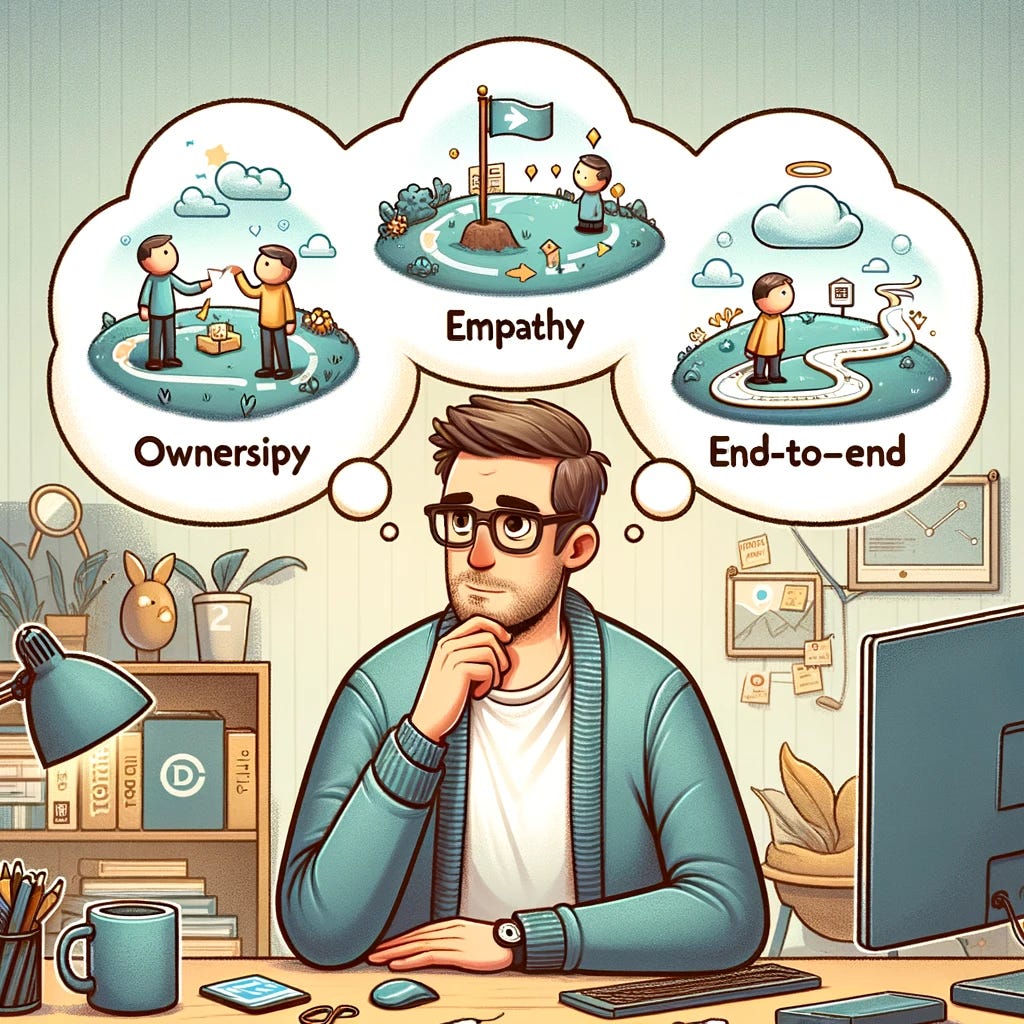The Importance of Ownership, Empathy, and End-to-End Thinking (and Testing)
A quick look at the three most common pieces of advice I provide when advising PMM, GTM, and DevRel clients
My last six months advising developer tooling startups with PMM, GTM, and DevRel have been fascinating. I've found myself repeating three core pieces of advice to teams:
Everything needs an owner
Have empathy for your user/customer
Think (and test) end-to-end
Let’s dive into these in more depth, and don’t forget to smash that like button and subscribe for regular content!

Ownership
During an initial organisational review, I often find things are broken: positioning, messaging, product processes, etc.
Cause #1 is that nobody owns the thing (i.e. nobody is accountable/responsible)
Cause #2 is that everyone owns the thing, which is really #1 in disguise
The fix is simple (but not easy 😁): make sure everything important has an owner who is accountable and responsible.
This owner should regularly report the strategy, hypotheses, metrics, etc., and take action when things aren't going well.
Looking back at my recent presentations, I introduced a related concept to the audience of my DevRelCon 2022 talk, “Is Product Led Growth (PLG) the “DevOps” of the DevRel World?”, with an explicit callout to the need for strong leadership if you’re adopting a PLG motion.
Empathy
My evaluation of a product and related messaging often shows that these are no longer explicitly aligned with the target user or their jobs to be done.
This drift typically doesn't happen overnight but results from natural entropy, which relates to the third point for needing (constant) end-to-end testing.
The fix for developing empathy is more challenging, but creating core user personas (and regularly reflecting on them) helps a lot.
Frequently, at Ambassador Labs, someone would question an assumption using a persona, e.g. "Does Platform Paula really care about XYZ?"
This helps establish empathy.
End-to-end thinking (and testing)
I've lost count of the number of times I've been confused by the sign-up flow, login process, the path to product "aha" moment, etc.
Upon reflection, it's obvious that the steps have been locally optimized at the expense of the global benefits (or understandability).
My advice here is to regularly run through forms, flows, and processes to make sure they make sense from a big-picture perspective. Test everything, click on all the links, read all the auto-generated emails, and ask if everything is current and cohesive!
I riffed on this topic in my DevRelCon talk in 2022, too:
Stay tuned for more content
Although I’ve provided screengrabs of slides from a talk on PLG, I don’t believe my advice here only relates to products with this type of go-to-market motion.
So, what do you think? Is this advice something you recognise? Can you see related problems in your organisation? Do you have additional advice for me and the community?
I hope this helps, and if it does, please feel free to comment below!







